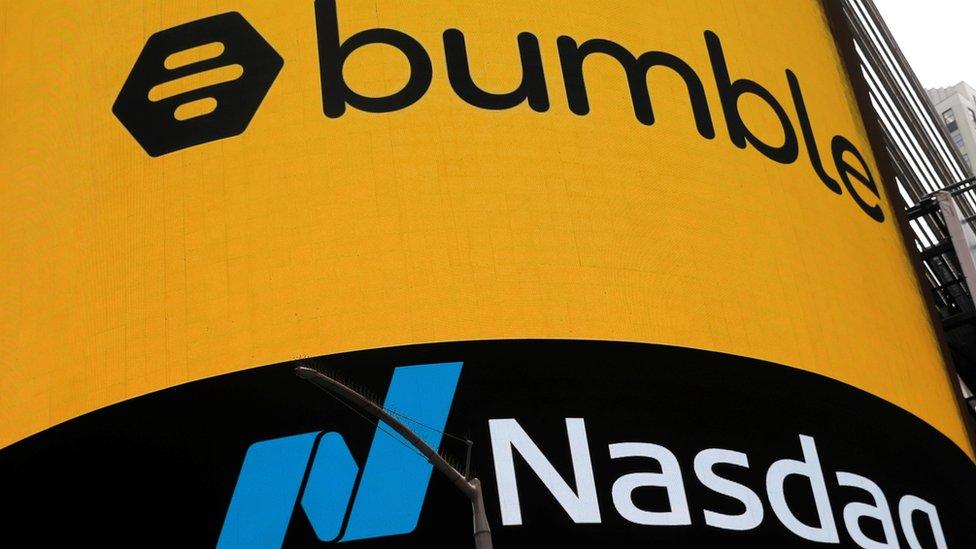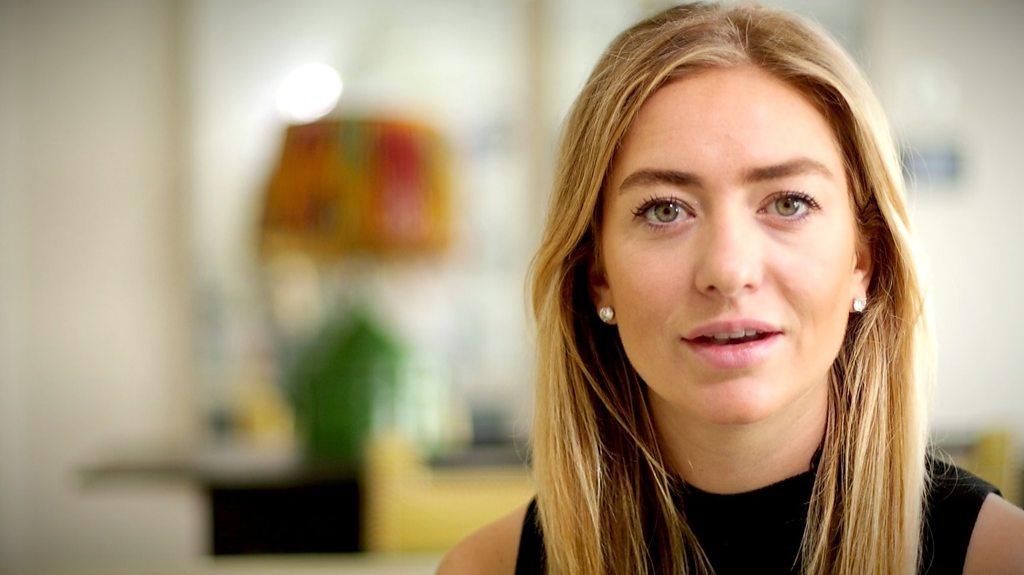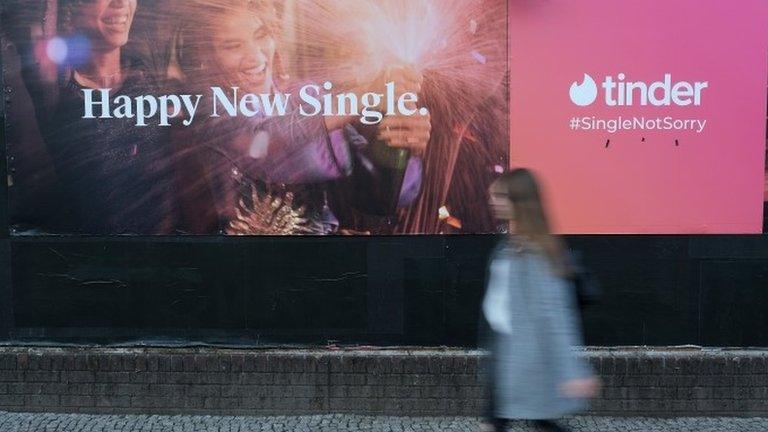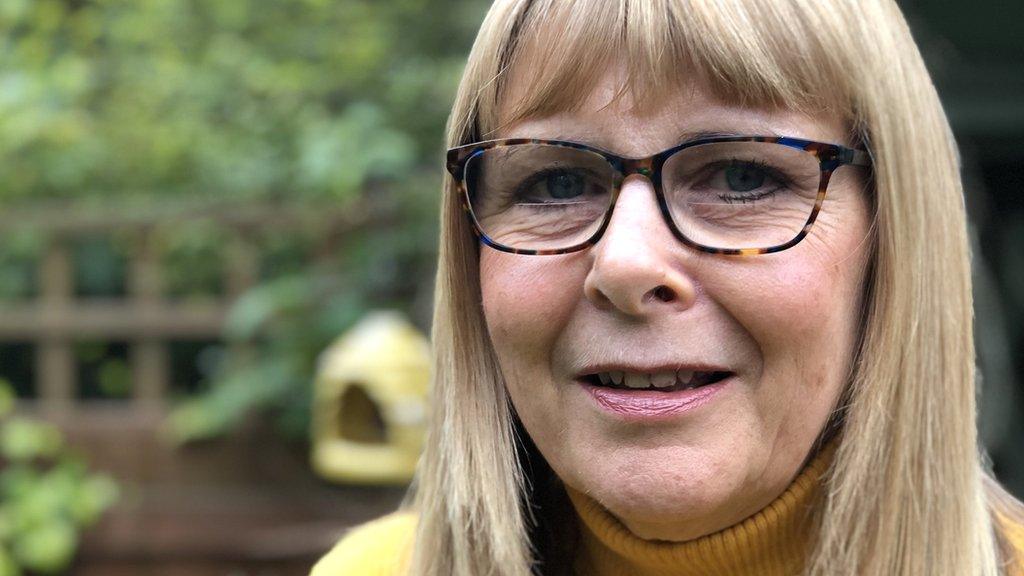Bumble: Female-founded dating app tops $13bn in market debut
- Published
CEO Secrets: Bumble founder Whitney Wolfe says don't take yourself too seriously
No bumbling here: Dating app Bumble, which made its name by putting women in charge of making contact with potential mates, has soared to a market value of more than $13bn after listing shares.
Its Wall Street success made 31-year-old boss Whitney Wolfe Herd a rare self-made female billionaire.
Bumble, which also owns Badoo, is one of less than two dozen US firms, external to list publicly while led by a female founder.
Shares in the firm debuted at $43 apiece, valuing it at over $8bn.
But in opening trade on Thursday they shot up to more than $76 each, making the firm worth more than $13bn (£9.4bn).
'Make the first move'
Ms Wolfe Herd launched Bumble in Texas in 2014, with backing from Russian billionaire Andreey Andreev, the founder of European online dating site Badoo.
She has said she was inspired to create a platform where women "make the first move" by her frustration with archaic gender norms controlling dating.
Unlike most dating apps, only female users can make the first contact with matched male users, while in same-sex matches either person can send a message first.
"I have experienced firsthand how unequal relationships negatively impact all areas of life," she wrote in a letter to investors ahead of the share listing. "I wanted to change this."
Ms Wolfe Herd, the youngest woman to take a company public in the US, also co-founded dating app Tinder, but left the firm alleging sexual harassment.
Tinder's parent company Match Group Inc, which denied the claims and later tried unsuccessfully to acquire Bumble, paid about $1m to settle the dispute.
Ms Wolfe Herd has led Bumble and Badoo since 2019 when Mr Andreev sold his stakes in both businesses to investment giant Blackstone. The two apps combined have 40 million active users, including more than 2.4 million paying customers.

Pandemic effect
Bumble, whose apps are available in more than 150 countries, has said it is poised for growth, pointing to the rising number of single people globally, increased adoption of online dating and signs that users have become more willing to pay.
The firm is also expanding into new areas, like business networking.
But despite an uptick in use, the pandemic has hurt the business, which makes money primarily from subscriptions and in-app purchases.
In 2019, revenue jumped more than 35% and it turned a profit of $68.6m.
In the first nine months of 2020, however, its growth rate sank to roughly 15% year-on-year, and it posted a loss of $116m.
In recent months, investors have displayed strong appetite for shares of new listings, sending companies such as Airbnb and Doordash to sky-high valuations in their market debuts.
Related topics
- Published26 June 2017

- Published21 May 2020

- Published1 January 2020
